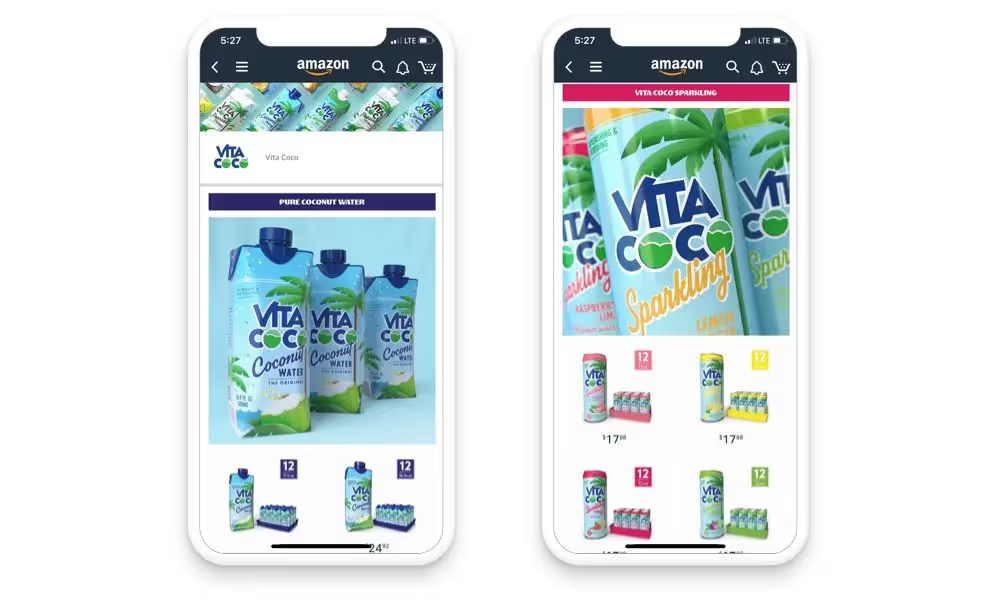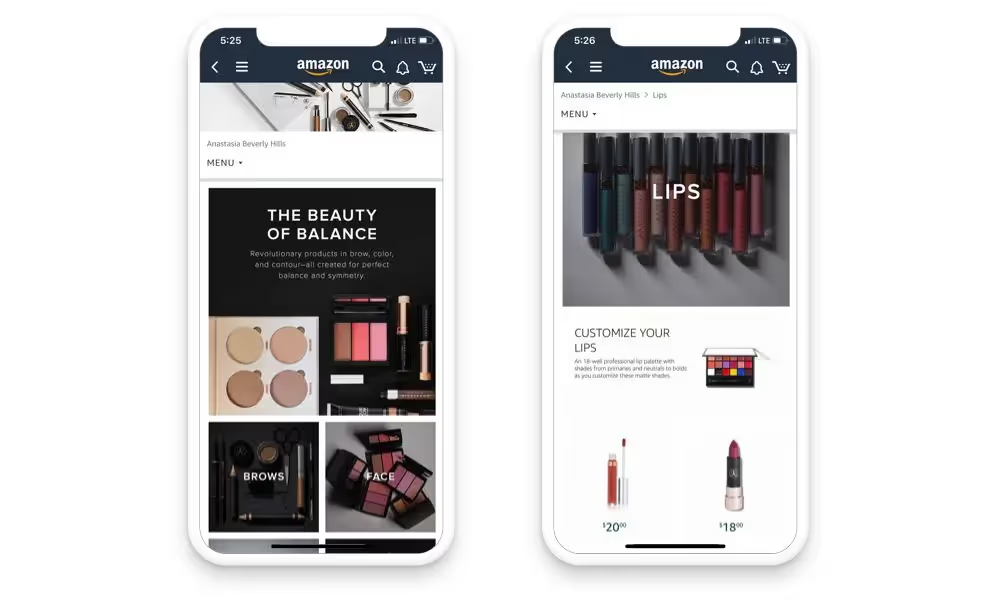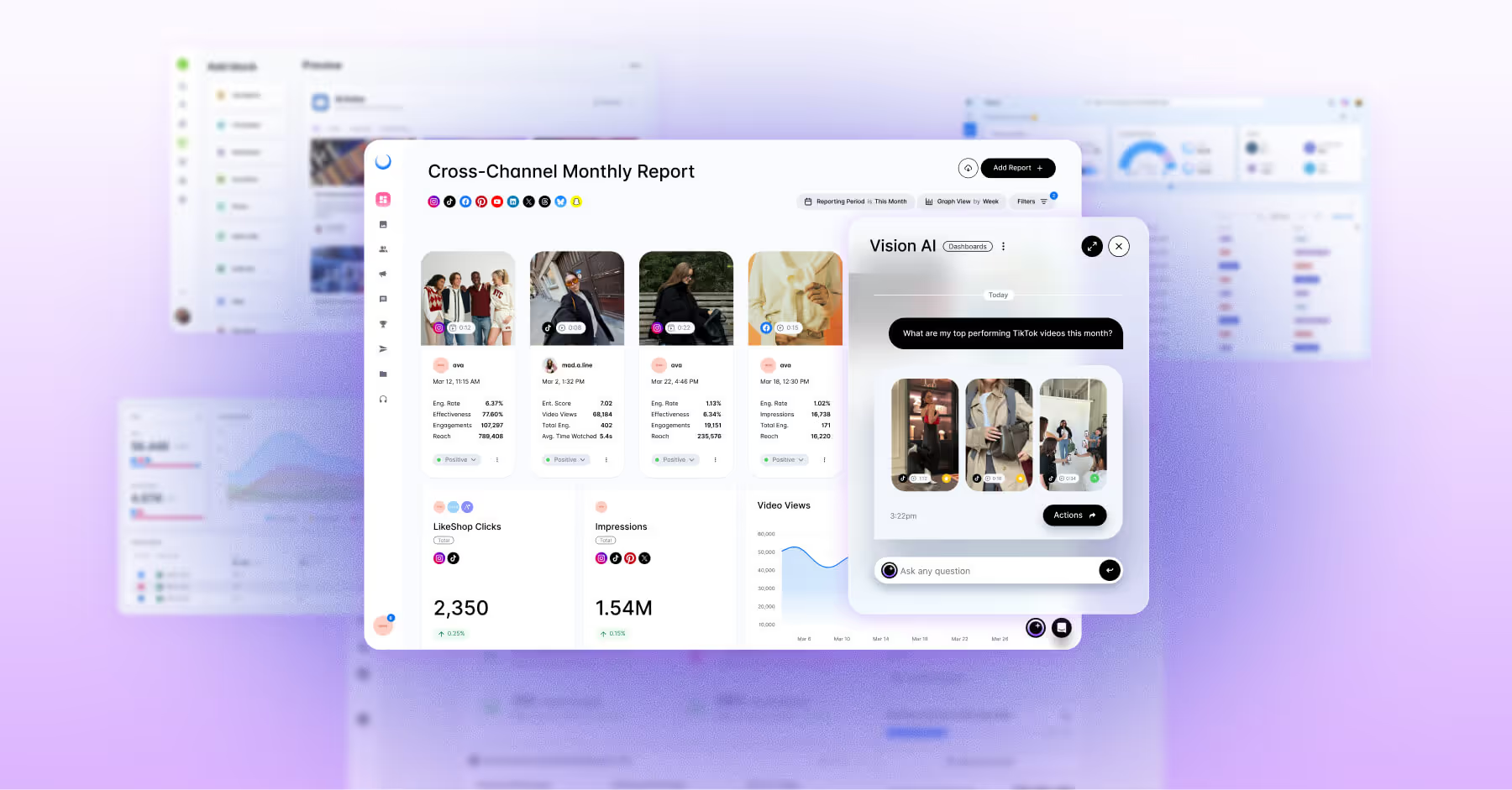How to Build a Winning Amazon Marketplace Marketing Strategy
A step-by-step guide to optimizing your Amazon marketing — from product images to content strategy — to drive sales.

Contents
Why Amazon Is an E-Commerce HubUnderstanding the Amazon Shopper: What Sets Them ApartVisuals That Drive ConversionsPowering Your Storefront: Optimize to ConvertFull-Funnel Thinking: How to Align Creative Across ChannelsUse Data to Fuel Your Amazon StrategyFinal Thoughts: Make Every Visual CountAmazon is more profitable than ever for sellers, but it’s also more competitive. To win, brands must break through the clutter with visuals that captivate and content that converts.

Why Amazon Is an E-Commerce Hub
Amazon has quickly evolved from a convenient place to shop to a lifeline for consumers, making it an even more valuable platform for brands. As businesses across industries quickly pivot their strategies to align with a shifting e-commerce landscape, they must ensure that optimizing their Amazon strategy is part of the equation.
Understanding the Amazon Shopper: What Sets Them Apart
Nearly 4 in 5 consumers use Amazon to compare prices and read reviews. Unlike traditional online retailers, Amazon is a robust marketplace where users evaluate competing products in real time. This head-to-head format demands sellers create listings that don’t just inform they persuade.

Visuals That Drive Conversions
70% of Amazon users choose listings based on images alone. While price, reviews and value matter, compelling visuals are the top driver of purchase behavior on Amazon. The marketplace is engineered for fast comparisons, which means your product images need to do heavy lifting quickly.
The pandemic has accelerated Amazon’s saturation, especially in high-growth categories like CPG, beauty, entertainment, and electronics. Brands like Vita Coco (+183%) and Manitoba Harvest (3x growth) are capitalizing on this moment largely through strong visual storytelling.
Powering Your Storefront: Optimize to Convert
Amazon’s Storefronts feature gives sellers the opportunity to go beyond basic listings and create immersive branded experiences. Leverage your existing creative — ad assets, social content, influencer media — to bring a consistent look and feel to your product story.
Even though Amazon’s imagery requirements are minimal, how you tell your story visually is where the competitive edge lies. Use photos and videos that show lifestyle context, product use, and real-world value. One underused way to showcase this kind of content is through Amazon Posts, which lets brands share shoppable, social-style content directly on their product pages and feeds. This is how consumers connect and convert.
Full-Funnel Thinking: How to Align Creative Across Channels
To succeed on Amazon, apply the same full-funnel strategy you would on social, email, or your website. Creative isn't just about aesthetics, it's also about performance.
If you already know what imagery drives clicks and conversions elsewhere, don’t reinvent the wheel. Repurpose that high-performing content on Amazon to maintain a consistent brand identity and boost conversion rates across the board.
Use Data to Fuel Your Amazon Strategy
You can’t improve what you don’t measure. That’s where tools like Dash Social’s Library come in — helping teams store and deploy every piece of creative (owned, earned, paid or new) from one central hub.
Better yet, Dash Social’s Predictive Vision AI acts like a real-time consumer panel. It tells you which images are resonating, where your competition is investing, and what visual trends are performing best—across your content and your industry.
With this intelligence, you can set data-driven goals, iterate quickly, and seize the moment as Amazon traffic soars.
Final Thoughts: Make Every Visual Count
Amazon is no longer just another channel, it’s a critical touchpoint in the consumer journey. Whether through product listings, Storefronts or ads, visuals play a central role in your success.
By bringing high-performing lifestyle content from your digital and social channels into your Amazon strategy, you’ll create a seamless, high-converting experience that meets your audience wherever they shop.





